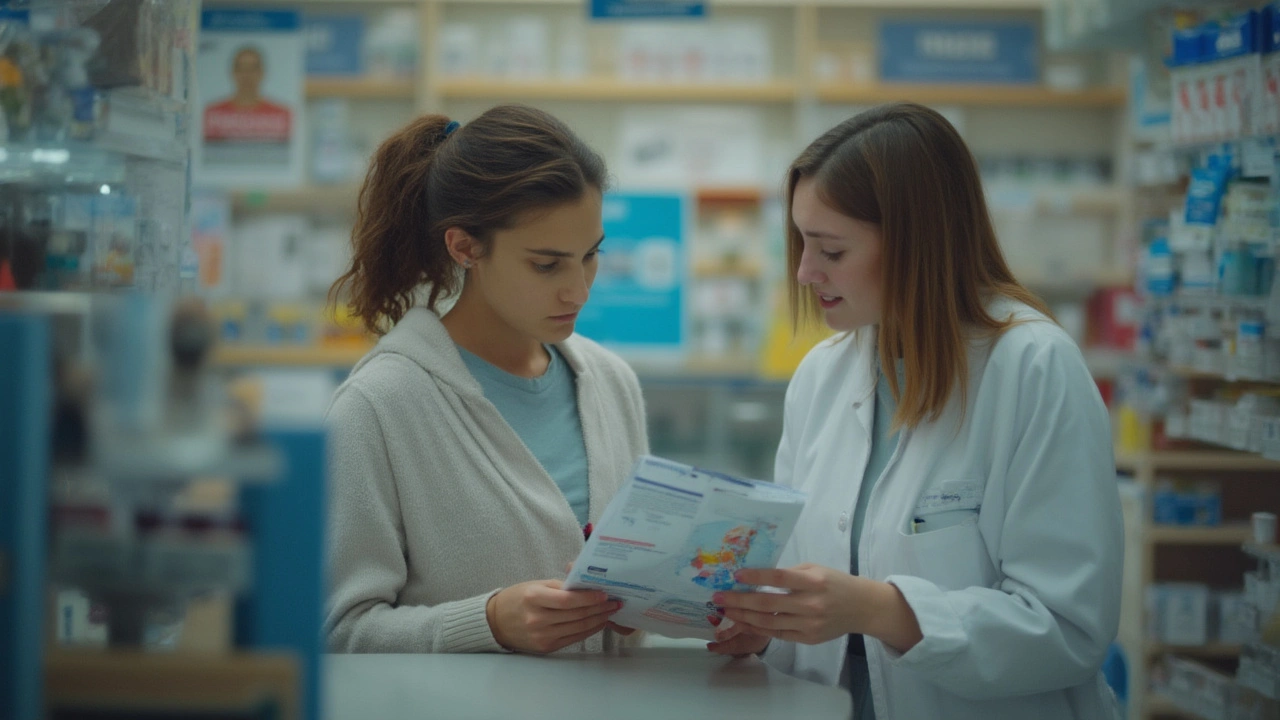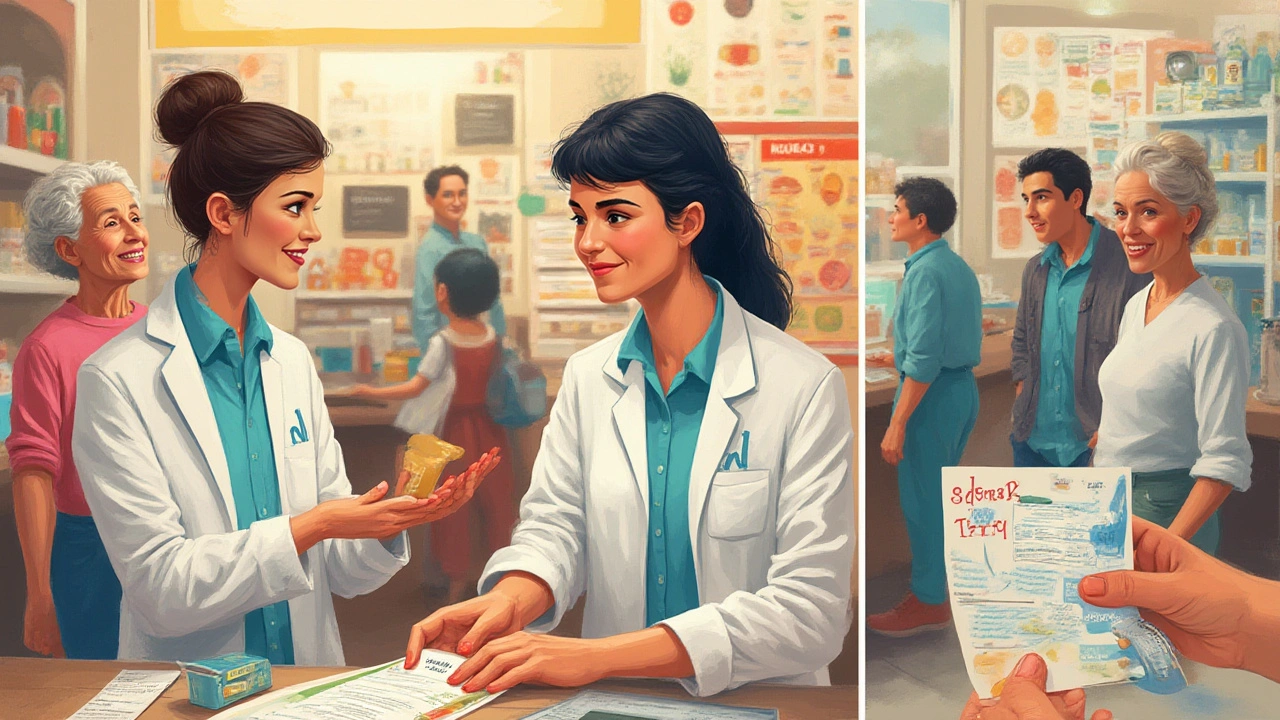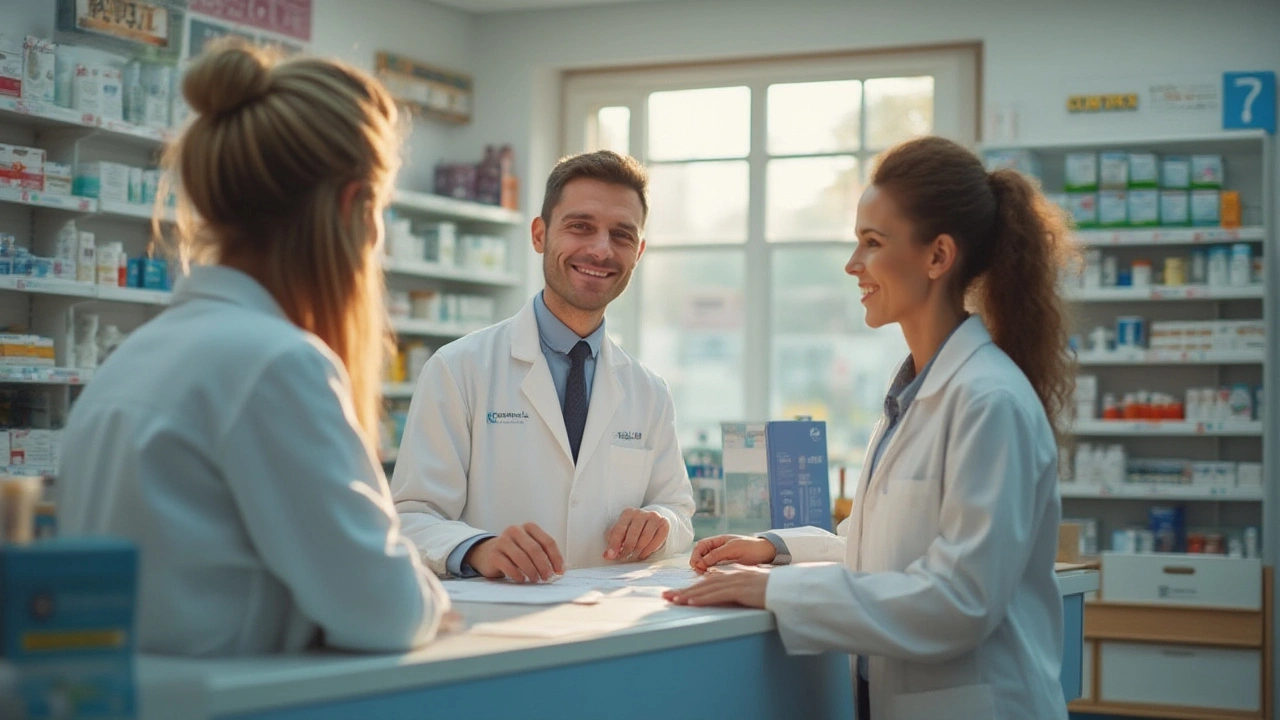Picture this: it's a Thursday night, rain's lashing against the windows in Bristol, and my kid Ellis walks into the room with that glassy-eyed, flushed look parents know all too well. It's the sort of situation many of us face—something feels off, but is it serious enough for a GP, or are we overthinking it? While doomscrolling through medical websites (never a great idea), we underestimate the real experts standing right in our neighbourhood—the local pharmacist.
Why Pharmacists Are the First Healthcare Heroes
Pharmacies used to be just a place to pick up a prescription and maybe a bag of sweets, but things are different in 2025. Now pharmacists are the first point of contact in the NHS for loads of common early symptoms. There are more than 12,000 community pharmacies in England alone, according to NHS Digital. That’s staggering—find one within a stone's throw just about anywhere you live.
What really sets pharmacists apart is the training. In the UK, pharmacists complete a 4-year Master of Pharmacy degree and a year’s supervised practice. They’re not just there to suggest a cold remedy—they spot patterns indicating early warning signs of illnesses. For instance, a sudden cough, unexplained rash, or changes to urine can flag early infections. They're trained to listen for clues, see visual symptoms, and link it all together.
And here's something most folks don't realise: since 2024, the NHS Pharmacy First scheme in England lets people get free advice and NHS-funded treatments for common conditions right from a pharmacy—no appointment, no long waits. Conditions like ear infections, sore throats, UTIs, or even shingles, are now covered. Many pharmacies have private consultation rooms, so you can talk about embarrassing stuff without side-eyes from the queue.
Spotting early symptoms is also about the little things. Say your kid has a fever but also a weird limp—pharmacists will ask follow-up questions you might never think to Google. And if it’s something more serious, they have clear referral pathways to GPs or A&E. It’s a massive safety net that quietly catches millions of possible emergencies before they spiral.
Here's a quick rundown of how a pharmacist can help at the first sign of trouble:
- Ask about your symptoms and listen to your concerns.
- Spot 'red flag' signs needing urgent care.
- Offer over-the-counter treatments or start NHS-funded care for eligible conditions.
- Advise self-care steps, from hydration to proper rest.
- Show how to monitor symptoms and when to seek more help.
- Refer you straight to your GP, urgent care, or A&E if things look bad.
Not convinced? A 2023 survey by Community Pharmacy England found that 80% of pharmacy patients rate advice as ‘very good’ or ‘excellent’, and over 2 million GP appointments have shifted to pharmacies each month thanks to Pharmacy First. That's hard evidence that makes a huge difference.
| Pharmacy Service | No. of Cases per Month (UK, 2024-25) |
|---|---|
| Colds/Flu Advice | 1,980,000 |
| Sore Throat Consultations | 570,000 |
| UTI Assessment & Treatment | 410,000 |
| Skin Rash Checks | 245,000 |
Pharmacists are not replacements for doctors, but they have a spotlight role in catching health issues before they snowball. If you catch the flu early, a pharmacist might recommend antivirals or hydration strategies before you get really ill. For young kids, elderly relatives, and busy mums or dads—it's reassurance without the wait or worry.

Tips for Making the Most of Your Pharmacy Visits
Stepping into a pharmacy can feel rushed, especially with a wriggly child or when you're feeling rough. But your experience can be transformed with a bit of know-how. Here are some tricks to get real value from your next visit—without needing a medical degree yourself.
First, ditch the urge to self-diagnose from the internet. Instead, jot down your main symptoms, how long they’ve been around, and anything that makes them better or worse. Bring along photos if it’s a rash or swelling. Pharmacists really appreciate specifics—they’ll ask about stuff you might overlook: have you taken any new medicines, got allergies, had recent travel?
Be honest, even about things you think are gross or silly. I once hesitated to mention that Ellis’s fever came with weird-smelling pee—turns out it flagged a UTI. A pharmacist spotted it within minutes and started us on the right treatment, probably saving a long night at A&E.
- List all medications and supplements you're taking.
- Describe symptoms clearly – when they started, what makes them worse or better.
- Mention recent travel, bites, or unusual exposures (for things like Lyme disease, chickenpox, etc.).
- Ask what signs you should watch for that mean things are getting worse.
- Request written instructions for aftercare if your memory’s fuzzy (totally normal when you’re tired or sick).
- Check if the pharmacy does repeat prescription services or can send reminders.
Don’t be shy with questions. If you’re worried about side effects, ask how to spot them. Want to know when it’s OK for your child to return to school? Just ask. Many pharmacists will print NHS advice leaflets and even help you register for digital symptom tracking (a lifesaver with chronic or odd recurring symptoms).
Parents might not always realise local pharmacies now stock rapid test kits for things like strep throat or COVID-19, making life so much easier than waiting on GP results. Pharmacists also give travel health advice, supply emergency contraception, and help people quit smoking with one-to-one coaching—all in the same visit.
And it’s not just about illness. Recent NHS guidance means pharmacists can spot early warning signs of things like diabetes, high blood pressure, and even depression. Many offer cholesterol checks and heart rhythm checks (great for those of us who have hit the big 4-0 and need a nudge).
Mistakes to avoid? Don’t leave out information because you think it’s embarrassing – what feels awkward to mention is often the key to the right advice. And remember, you’re never wasting a pharmacist’s time. In fact, by coming in early, you’re helping relieve strain on GPs and hospitals.
Busy lives mean we all want things fixed yesterday, but slow down enough to give the pharmacist a clear picture. It saves you time in the long run and stops one night’s fever turning into a week-long crisis.

How Pharmacists Change Health Outcomes in the UK
Here in the UK, pharmacists are reshaping how the NHS works. The government has pumped £645 million into expanding Pharmacy First over two years. Why? Because the numbers speak for themselves: roughly 9 in 10 people in England live within a 20-minute walk of their nearest pharmacy. Most of us are closer to a pharmacy than a GP surgery—often by miles.
During the COVID-19 pandemic, pharmacies gave over 25 million jabs in England alone. That showed how vital they are. But their role goes deeper—they manage long-term conditions like asthma and high blood pressure, spot early issues with new medicines, and advise on everything from eczema to mental health support.
Here’s something many people don’t realise: community pharmacies now record serious symptoms and feed that data securely into NHS systems. So if something cropped up for you and you visit a GP later, your medical notes are joined up. It's part of the wider NHS drive to give patients safer, connected care.
Pharmacists don’t just push pills—they’re trained to look at you as a whole person. Got recurring headaches and you’re stressed about work? They might check your blood pressure, ask about your workload, link your symptoms, and suggest next steps—sometimes lifestyle tweaks are as important as medicine.
They also play a crucial role for vulnerable people—elderly patients, new parents, carers, people with disabilities. For example, a regular chat with a pharmacist can spot deteriorating eyesight, mental decline, weight loss, or side effects long before anyone else. Those quick check-ins fill a gap when GP appointments are hard to get.
Accessibility makes a huge difference. Many UK pharmacies are open evenings and weekends—no need to juggle work schedules or pull a child out of school. And lots offer services in several languages, with interpreters available on request. That can empower people who might otherwise miss early warning signs because of communication barriers.
Pharmacies are also fighting fake health info. Pharmacists use only evidence-based advice, train constantly, and keep up with new health threats. They spot dangerous self-medication or dodgy online trends—like when TikTok convinced people that vitamin D cured everything. The reality? A pharmacist sees the results of that sort of rumour: late diagnoses, infections, or kids accidentally overdosing on common painkillers.
For anyone in Bristol (or frankly, anywhere in the UK), the message is simple. The next time you catch those first twinges, a cough, a rash, or that parent’s gut feeling that something’s off—walk into your pharmacy. You’ll get tailored advice, safe treatment options, and, most crucially, a friendly expert who listens before things get worse. That immediate, expert support is what keeps people healthier, and, let’s be real, saves all of us a ton of time and stress when it counts most.

